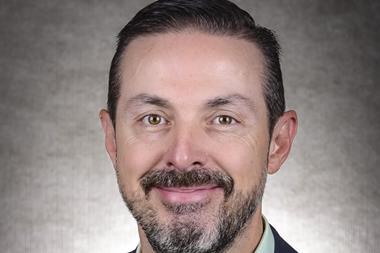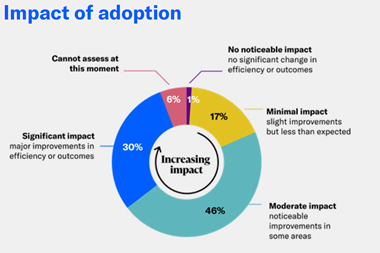Frank Heinrich-Jones looks at the effects of the Public Interest Disclosure Act.
A11 organisations risk unknowingly harbouring malpractice, or simply risk things going badly wrong. However, employees are often reluctant to draw their concerns to the attention of colleagues in their own organisation, because they fear that victimisation will follow. In such situations, they may view "blowing the whistle" to regulators or the press as their only option.
The Public Interest Disclosure Act, which came into force on 2 July 1999, was introduced against the background of a decade in which several major disasters had occurred. These might well have been prevented if the organisations involved had only had an effective whistleblowing policy in place. The culture of silence and inaction, the unspoken code of not telling on one's colleagues is commonplace. In certain organisations, there is additional active discouragement or persecution of those who do attempt to "blow the whistle". In many others, there are no formal procedures to enable those with concerns to raise them. The Disclosure Act sets out to protect genuine whistleblowers who feel their concerns would fall on deaf ears or meet with complacency, inaction or discrimination, while balancing the needs of employers against the public interest.
Before the Act came into force, the whistle blower had three options:
In the past, potential whistleblowers have often been too scared to sound the alarm for fear of reprisals. When they have raised their concerns, it has often been to the wrong person or in the wrong way. The Act is aims to encourage and protect the whistleblower. Failure to implement an effective whistleblowing policy could prejudice an employer's case in any subsequent hearing for wrongful dismissal.
Key points for employers
The Act inserts a new Part IVA into the Employment Rights Act 1996, protecting employees from victimisation. Employers should be aware of the following key points.
There are no qualifying periods or age limits to restrict the Act's application.
Employees' responsibilities
Staff also have responsibilities. In order to be protected by the Act, an employee must:
Need for a positive culture
The London Stock Exchanges rules require the boards of quoted companies to maintain "a sound system of internal controls" to safeguard shareholders' investment and the company's assets. Directors of public companies must review these systems at least once a year and confirm that they have done so in their annual report to shareholders. Internal controls are not sound if staff do not have the confidence to raise a concern.
A positive whistleblowing culture contributes to the success of any risk management and corporate governance system. It can also help organisations to keep one step ahead of the requirements and initiatives of the financial markets, regulators and legislators.
In particular, organisations should:
Case histories
Two cases have already been brought under the Public Interest Disclosure Act.
In June this year, North London industrial tribunal ruled that Fernandes had been unfairly dismissed saying that Netcom's US parent company, Xsource Corporation, had breached the Act and made a clear attempt to intimidate him into keeping the matter quiet. He was awarded £293,000 compensation for loss of earnings. The tribunal found that the reasons given for his dismissal were a "smoke screen" to avoid disclosing malpractice.
Guy Dehn, director of the charity Public Concern at Work, the leading organisation in this field, said the award was a "wake-up" call to every employer in the UK, pointing out that employers who "suppress warnings and shoot the messenger" are taking enormous risks with their reputations. After the ruling, Fernandes stated that other employers and companies should learn from the case. He hoped it would pave the way for staff wishing to expose irregularities. * The second case involved Marcia Solomon, who was employed as a secretarial assistant to Nelson Mendes, the head of finance at the Manufacturing, Science and Finance Union (MSF). She was dismissed after she alleged fraud by MSF executives.
Solomon brought two cases against the union - for unfair dismissal and wrongful dismissal. She withdrew an action for
racial discrimination. She had to prove that she acted in good faith under the new whistleblowing legislation in reporting the alleged fraud and impropriety. The union's case was that she knew the allegations were untrue when she made them, so she could not claim protection from dismissal as a whistleblower, and had been dismissed for "gross misconduct."
Following disclosure of some irregularities, the union agreed an out-of-court settlement believed to be more than £50,000. This was a compensation payment, including legal costs for Solomon's unfair dismissal.
A further case, due to come to court in March 2001, involves Peter White, the former chief executive of the Alliance & Leicester, who was ousted last October. White is reportedly planning to sue his former employers for an unlimited sum under the Act rather than for unfair dismissal, where compensation is limited, and is expected to allege at the tribunal that he was dismissed for threatening to expose material information to investors last year.
Positive results
The Antonio Fernandes case was a success for the plaintiff. He was awarded compensation well above the £50,000 maximum allowable under the unfair dismissal legislation. He was able to prove that his disclosures had been fair and reasonable. Although Marcia Solomon settled out of court, she still gained substantial compensation and vindicated her whistleblowing actions. So far, then, the legislation has had two positive results. It has also helped to bring the attention of organisations to the need to introduce whistleblowing policies. Changing the culture of British society, which frowns on "grassing" on one's colleagues is another matter.
--
Frank Heinrich-)ones is a director of PLC Consultancy Services, Tel: 023 8045 4546, e-mail: management@plcci.co.uk
Avoidable disasters
Some of the disasters of the past decades might have been averted if an effective whistleblowing policy had existed.
Who owns your whistleblowing policy?
Whistleblowing policies have such a central and wide-ranging impact that they are best co-ordinated and managed from the top of the organisation, says insurer AIG Europe. Ultimate control may rest in the chairman's office, with the non-executive directors playing their part.
A central policy must be backed up by strong support and tangible action from specialist departments. In a large pic, these may include:
Smaller companies without specialist departments could have a policy whereby they ask employees to keep their eyes open, as a key way to promote, display and ensure good practice. Successful involvement of employees wilt send a clear message that malpractice will not be tolerated.
AIG Europe, in conjunction with the charity Public Concern at Work, have produced a guide entitled Wake up to Whistleblowing to help management get to grips with the issue. It offers advice on promoting a positive Whistleblowing culture within organisations. Copies can be obtained by calling Katherine Newton on 020 7280 8993.
Qualifying disclosure
The Public Interest Disclosure Act 1998 will protect a worker who blows the whistle if the disclosure is made in good faith and is about:
Hotlines
Independent hotlines can help to promote a positive whistleblowing culture. For example, PLC Consultancy Services' independent third party secure hotline, Care/me, is an 0800 freephone number, manned by professional call handlers. All calls are recorded, and secure, confidential client reports are issued within as short a time as possible after the call is received. These reports are sent by pre-arranged secure methods to two separate senior individuals within the client's organisation, with feedback provided to the caller if required.



















